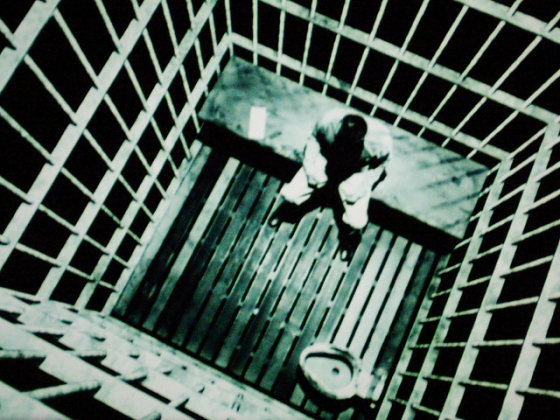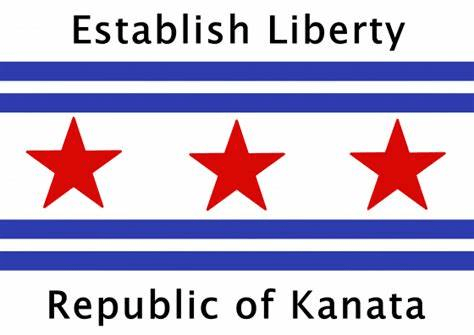He was a reclusive man, although as I learned that was less by nature than circumstance. He sat alone in the crowd at Spartacus Books on that Friday night in the spring of 1974. We were listening to a veteran of the On to Ottawa Trek describe how he had lost an eye after by being clubbed during an RCMP attack.
“But it didn’t matter,” the old man chortled. “You shoulda seen what I did to that Mountie!”
The rest of us laughed, too, except for the reclusive man.
He lingered for coffee after the forum, and our eyes kept meeting, as they were meant to. I finally asked him what he thought of the veteran’s talk.
“It was okay, as far as it went,” he said cautiously. “Some guys don’t like to talk about their Party affiliation, and he’s one of them.”
I could see my companion was bursting to share something more. When he realized I was keen to listen, he suggested quietly that we move downstairs to the White Lunch café.
His name was Leonard Shapiro, although that was a pseudonym, he quickly told me. For years, he had been a Philosophy professor at the University of Montreal, as well as the local organizer for the Communist Party. He had been married with three children. But all that had ended a quarter century before.
“I still can’t open a bank account, even now, and I'm nearly sixty,” Leonard said tiredly over the untouched soup in front of him. “I can’t get a job, I can’t make friends. The feds come down on anybody who tries helping me. Even my own kids won’t see me, not since the divorce. It's like being locked up in solitary.”
Leonard still didn’t know why the blacklist had struck him so quickly and devastatingly. It slashed and burned his old life to cinders in a few days while the world stood by and watched or applauded. When I asked him how that was possible, he smiled for the first time.
“In this country, it’s easy to destroy someone,” he answered, his clear blue eyes boring into me. “Canadians are cattle.”
As dumbfounded as I was by his grim account, I soon realized that the grey-haired man was giving me priceless first-hand instruction on how to navigate and survive state terror: an inestimable gift I would appreciate only much later. But the more he spoke, the clearer I saw that what he was enduring was only survival of a sort. He was completely alone, penniless, shunned, and being crushed by the same power that had wiped him out in the fall of 1949.
“Once the big boys target you, it’s game over,” he said sharply, warming to his topic like he was teaching a tutorial again.
“But you find out quickly they aren’t the problem. Your worst enemy is yourself and your illusions. If you don’t get rid of them, you’re dead. You’ve got to be totally realistic and start thinking like a soldier in combat. You always stay alert and three steps ahead of your enemy. Because there’s never any let up, never any rest in your fight.”
I looked at him perplexed. Then I asked him what people routinely say to me now.
“So, how have you survived all these years?”
Leonard stared at me with a look that, at the time, I thought I would never understand, even if I lived a hundred years. It took me a lot less than a century to acquire it myself. At the time, the chasm between our very different lives allowed only silence to accompany my blithe query about something that couldn't be put into words. And yet, unknown to me and maybe to Len, by his quiet strength and endurance he was helping to prepare me for my own time of testing.
Leonard and I spoke for hours that night. We promised to get together again, but the days became months; and being just eighteen and a novice revolutionary, I didn't understand what Len was offering me, for my skies were still clear of suffering and sacrifice. It would be many years before I learned, like Leonard, how deep is the cost of never letting go of oneself or one’s principles; and how indestructible is the part of us that neither time nor tyranny can crush.
Later that same year, I learned that Len had died of an apparent heart attack. There was no funeral and no epitaph for him, except the one I knew I would write with more than my words.
Here We Stand
Here We Stand is the official voice of The Republic of Kanata and the Republican Party of Kanata. The weekly program is a platform to unite and mobilize the revolutionary remnant who are forming the basis of a new society based on equality, Common Law and liberty.
The Vision and Program of the Republic and the Party can be found here: Establishing Liberty: The Case for the Republic of Kanata - https://www.amazon.com/dp/1721282033
The Republic and the Party can be contacted at republicofkanata@gmail.com. Kevin's email is thecommonland@gmail.com.
See also http://murderbydecree.com/
See also https://republicofkanata.org/
Donations to Here We Stand can be made by writing to the emails above.
Kevin's recent books, available through Amazon, are listed below:
Murder by Decree - The Crime of Genocide in Canada: https://www.amazon.com/dp/1530145619
Unrelenting: Between Sodom and Zion: https://www.amazon.com/dp/1523905778
Establishing the Reign of Natural Liberty: A Common Law Training Manual: https://www.amazon.com/dp/1544239610
At the Mouth of a Cannon: Conquest and Cupidity on Canada's West Coast: https://www.amazon.com/dp/1983790842 , https://www.amazon.com/dp/B07JZKNDJK
Truth Teller's Shield: A Manual for Whistle Blowers & Hell Raisers: https://www.amazon.com/dp/1537363948
Establishing Liberty: The Case for the Republic of Kanata: https://www.amazon.com/dp/1721282033
Here We Stand: The Call of the New Protestant Reformation: https://www.amazon.com/dp/1974273474
Fallen - The Story of the Vancouver Four: https://www.amazon.com/dp/1548152684
The Sacrifice - Of Family and Empire: https://www.amazon.com/dp/1727005961
1497 and so on: A History of White People in Canada or, The Caucasian Healing Fund:
https://www.amazon.com/dp/1541034961
The Border: A Post-Canadian Anthology - https://www.amazon.com/dp/1092763910
Kevin's award winning documentary film Unrepentant can be viewed at https://www.youtube.com/watch?v=swGEK8duSiU . See also an insightful personal interview "Who is Kevin Annett?" (2013) at: https://www.youtube.com/watch?v=AY4h3hDjOYM
--
Listen to Kevin live every Sunday at 6 pm eastern at https://bbsradio.com/herewestand . See the evidence of genocide in Canada and globally at http://murderbydecree.com/











